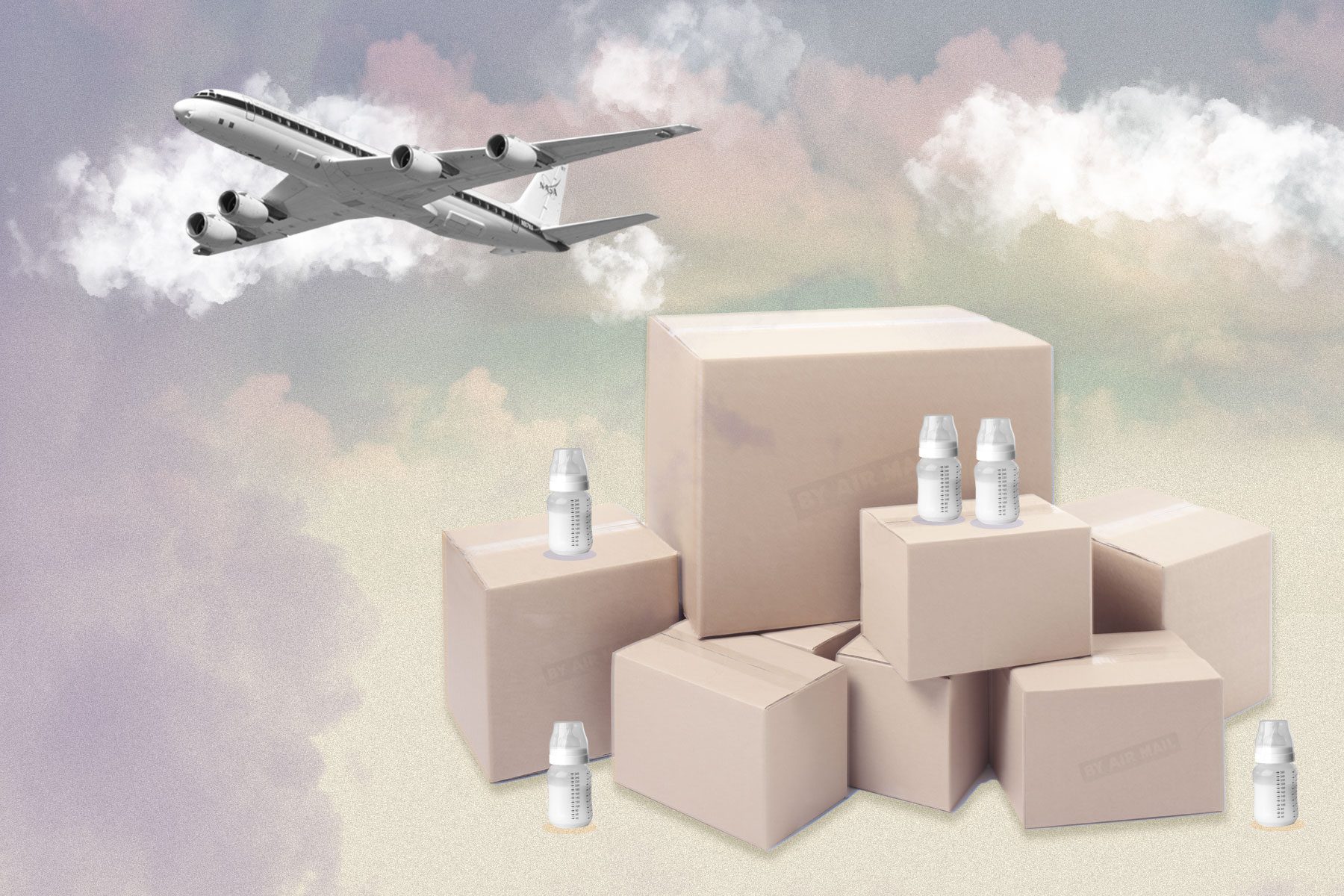This summer, medals weren’t the only closely tracked commodity at the Tokyo Olympics.
Kate Torgersen calls it “liquid gold.” And for several weeks, it was her job to help oversee the logistics of getting breast milk from the Summer Games to different parts of the United States. She plans to help a handful of breastfeeding parents now in Tokyo during the Paralympics Games that begin on Tuesday.
Torgersen is the founder and CEO of Milk Stork, a California-based company that ships breast milk. She didn’t plan for Milk Stork to play such a critical role in lactation services for breastfeeding parents at the Olympics. It started in late May, when Torgersen saw news headlines about a marathon runner who was told she couldn’t bring her nursing infant daughter to the Tokyo Olympics because of the pandemic.
Milk Stork soon sent a tweeted response: “OH HELLLLL NO! Breastfeeding @TeamUSA & @USOlympic athletes & coaches (& athletes/coaches from other countries too!), pls contact us if you need to get your #breastmilk from Japan.” It asked followers to spread the word.
The tweet kicked off a frenzy of activity for Torgersen, who launched Milk Stork in 2015 after facing logistical challenges bringing breast milk for her twins home from a work trip. The company estimates it has shipped 4 million ounces of breast milk to date.
Ensuing public outrage soon led officials with the International Olympic Committee to reverse their ban. So Milk Stork switched gears, focusing on Tokyo-bound support staff, who Torgersen said weren’t covered by the new policy. (The IOC has defended its policy, which had its own logistical issues, according to at least one athlete who said she did not end up bringing her son to the Games because it was not guaranteed she could be near him.)
Through emails, text messages and direct messages on social media, Milk Stork ended up being a key service for those supporting staff, including physical therapists, nutritionists and trainers.
“There’s a whole army of people that go to the Olympics … those people are kind of on the same timeline as an Olympic athlete, and they’re going to be gone possibly longer than an Olympic athlete is going to be gone in Tokyo,” Torgersen said. “So the next wave, which is probably one that didn’t get as much publicity, is how do we support those women, those people who are lactating and going to the Olympics?”
Torgersen estimates Milk Stork helped ship more than 21 gallons of breast milk during the Games that wrapped earlier this month. Milk Stork provided parents with special coolers and other storage materials, which they used to freeze and stockpile their milk. When the coolers reached capacity, parents contacted a logistics person who collected the shipments. Milk Stork, along with a silent partner, covered the costs of shipping for parents and worked with FedEx to coordinate on-the-ground logistics. Once a breastfeeding parent at the Games sealed their milk in special insulated packaging, Torgersen had just 96 hours to get it to its destination across the globe.
It was an Olympic-level logistical feat.
“The village was essentially on lockdown. So you couldn’t just come and go out of the village,” Torgersen said. “We had to figure out, ‘How can we get shipments out of the village? How can we get FedEx close to the village and make sure that women are able to actually get those shipments tendered to a shipper?’”
The company estimates it will ship at least an additional 10 gallons of milk during the Paralympics.
Torgersen considers Milk Stork a first-of-its-kind company in the growing field of lactation services, though it has focused primarily on helping parents in corporate settings. The Games changed that.
“It’s so much of a pain point that when you’re faced with a business trip, many do not want to take on that pain point or the logistics involved in navigating that pain point while they’re away,” Torgersen said. “What the Olympians were facing is pretty much the same experience that a lot of working lactating people experience on a daily basis. It’s the blind spot to this reality of motherhood.”
The experience highlights the lack of an organized and standardized system at the Games for supporting breastfeeding parents, said Molly Dickens, co-founder and executive director of &Mother, a new nonprofit organization co-founded by track and field Olympian Alysia Montaño. The organization describes itself as seeking to break barriers women face around career and motherhood, starting in professional sports. It assisted some women athletes in Tokyo with grant money for needs including child care and family travel. Dickens informally helped Torgersen by providing contact information to breastfeeding parents headed to the Games.
Dickens called the efforts to help breastfeeding parents at the Olympics “a microcosm for what all of us are experiencing this year in terms of motherhood.”
“It’s like we’ve all been put into this pressure cooker and we’ve lost so many valuable humans because the system fails mothers,” she said.
Representatives for the IOC and the International Paralympic Committee did not respond to a request for comment about its lactation services (at least one athlete shared photos on social media about a nursing room in the Olympic Village). A media spokesperson for the IOC has stated in previous communication that it “is great to see so many mothers compete at the highest level, including at the Olympic Games.”
Sascha Mayer is the CEO of Mamava, a Vermont-based company that designs lactation rooms and pods for breastfeeding parents. The company, which launched nearly a decade ago, estimates it has installed more than 1,800 pods across all 50 states. Mayer said the infrastructure of supporting breastfeeding parents has taken more shape in recent years with companies like Mamava and Milk Stork, but it is being further elevated by athlete parents.
“Just people talking about it is super important because it has been so weirdly invisible,” she said.
Dickens said the Tokyo Olympics put a bright spotlight on athletes who have become more vocal about the challenges of balancing expectations around parenthood and athletics. Dickens believes the sports world needs to step up and do more to ensure the glowing headlines translate into policy changes that include more services for parents.
“We praise them, we see them, we see them winning, we see them doing great things, and brands are benefiting from them and networks are excited to share their stories,” she said. “Now can we reevaluate what needs to be in place to support more journeys through this? That’s where I feel like the door has cracked open to start having these conversations and start setting standards.”
Torgersen hopes there are more clearly defined lactation services for future sporting events, including the 2022 Winter Games in Beijing and the 2024 Summer Games in Paris.
“These people are more than just athletes, and part of the thing that charges them as athletes is the fact that they’re mothers,” she said. “So let’s enable them to live out their full identities and support their full identities and their full selves. It is more than just the people who are hitting the podium. It’s the people who are supporting these events in general, and their experience is no different.”
Torgersen added that Milk Stork, with a current staff of seven, is ready to provide future breast milk shipping needs to athletes and support staff.
“I don’t have a direct line to the IOC,” Torgersen said. “I don’t know how to reach them. I only know how to reach out by telling this story.”







